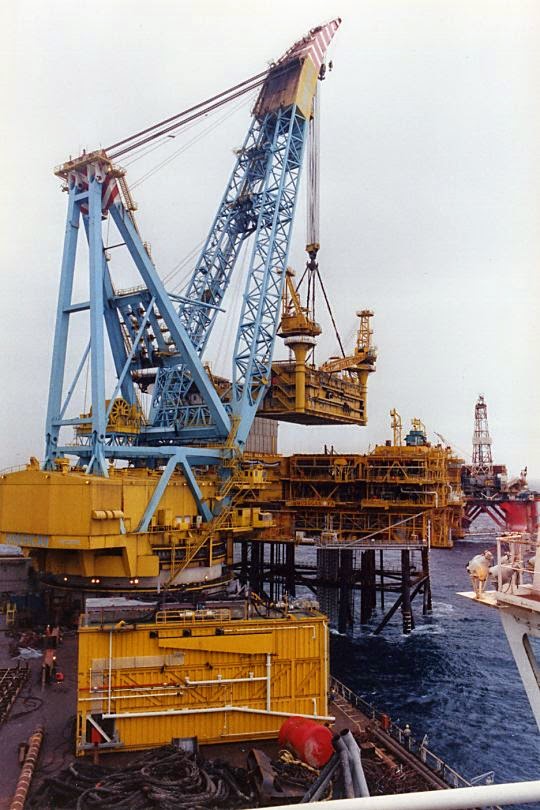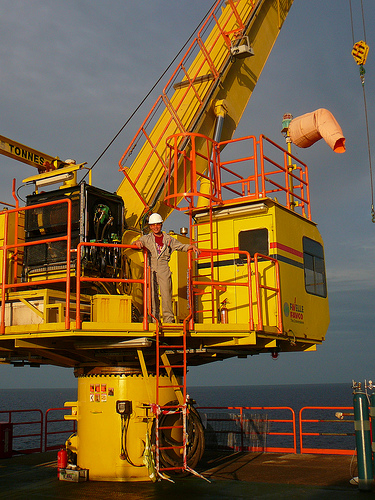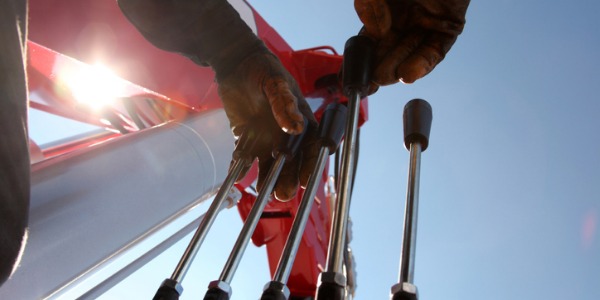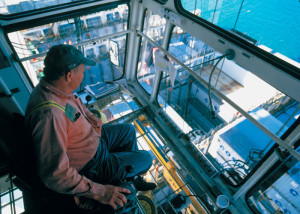Crane Operators Interview Questions & Answers
What does Crane Operator mean?
A Crane Operator is an individual who is responsible for the safe as well as efficient operations and generic maintenance of various cranes present on the drilling rig. The individual also carries out the supervision of all the activities to check if they are done according to the instructions given by engineers. The operator can also deliver important on job crew training within slinging and lifting. The offshore Crane Operator works on deep ocean oil rigs at offshore sites where cranes are used to lift heavy equipment.

What is Crane Operator roles & responsibilities?
Crane Operators are subjected to move heavy equipment at the oil rigs in onshore and offshore sites. They are expected to efficiently and safely operate heavy machinery that is required to be operated with great focus and skill. They are completely responsible for moving and placing all heavy equipment safely without damaging them or affecting the surrounding and people working on the rigs. The operators should be skilled to operate different types of cranes including service trucks, mobile, overhead, articulating cranes and tower cranes.
At offshore rigs, the Crane Operators lift heavy equipment and sometimes supervise other workers and maintain routine performances. They are responsible for securely lifting, moving, backloading and offloading of the equipment, personnel and supplies, etc., from the water vessels and from the rig floors.

What is a Crane(Machine)?
A crane is a type of machine, generally equipped with a hoist rope, wire ropes or chains, and sheaves, that can be used both to lift and lower materials and to move them horizontally. It is mainly used for lifting heavy things and transporting them to other places. The device uses one or more simple machines to create mechanical advantage and thus move loads beyond the normal capability of a human. Cranes are commonly employed in the transport industry for the loading and unloading of freight, in the construction industry for the movement of materials, and in the manufacturing industry for the assembling of heavy equipment.

What does a Crane Operator do?

Crane operators typically do the following:
- Control equipment with levers, wheels, or foot pedals
- Move material according to a plan or schedule they receive from their superiors
- Set up and inspect material moving equipment
- Make minor repairs to their equipment
- Record material they have moved and where they moved it from and to
In warehouse environments, most crane operators use forklifts and conveyor belts. Automated sensors and tags are increasingly used to keep track of merchandise, allowing operators to work faster. In warehouses, operators usually work closely with hand material movers.
Many crane operators work for underground and surface mining companies. They help to dig or expose the mine, remove the earth and rock, and extract the ore and other mined materials.
In construction, crane operators remove earth to clear space for buildings. Some work on a building site for the entire length of the construction project. For example, operators often help to construct high-rise buildings by transporting materials to workers far above ground level.
What is the workplace of a Crane Operator look like?
Crane operators work in a variety of industries, such as construction, pulp mills and refineries, mining, metal manufacturing, and warehousing and storage.
Some of the older cranes can be very noisy and using ear protection is essential. The crane operator often stays in the crane for most of the day, and eats lunch and takes breaks in the cab. They spend all day in constant communication with other people, and operate using hand signals from the crew or by using radios.
Crane operators can move up and become supervisors or foremen and occasionally people buy their own equipment and go into business for themselves as independent owner-operators.
A crane operator holds responsibility for safely operating the crane at all times. He is also responsible for supervising the crane operator assistant as well as the roustabouts. Usually the said assistant crane operator is a normal worker who has managed to advance from entry level roustabout and has completed the necessary on-site training course and has proved to be qualified enough to operate the crane. Due to the fact that the work area’s size is quite confined the operator must be aware of his surroundings and be on the lookout for any potential danger during a given lift procedure. He is to work with a qualified spotter and rigger in order to ease the task.
An offshore oil rig crane operator’s job is simply vital. In order to exemplify that we are going to  point out the fact that virtually nothing goes on board the offshore rig without the crane operator lifting it, including pipe, personnel, drilling fluid, food, casing and other various supply items. The rig crew will also be lifted up in a crew basket from the work boat below, unless they are appointed to the site via a helicopter.
point out the fact that virtually nothing goes on board the offshore rig without the crane operator lifting it, including pipe, personnel, drilling fluid, food, casing and other various supply items. The rig crew will also be lifted up in a crew basket from the work boat below, unless they are appointed to the site via a helicopter.
A crane operator has to take in all dimensional aspects up and down, left and right, as well as the load’s size in order to properly prepare for its lifting. Offshore lifting comes as an even more burdensome task due to the rising and falling sea. The barge or workboat, from which the item/s is/are to be lifted, may be rising and falling in a diapason of several feet. The operator is to cope with this in order to not damage the barge, the load, the crane or the rig and crew
What do you know about our company?
Follow these three easy research tips before your next job interview: 1) Visit the company website; look in the “about us” section and “careers” sections 2) Visit the company’s LinkedIn page (note, you must have a LinkedIn account — its free to sign up) to view information about the company 3) Google a keyword search phrase like “press releases” followed by the company name; you’ll find the most recent news stories shared by the company Remember, just because you have done your “homework”, it does not mean you need to share ALL of it during the interview! Reciting every fact you’ve learned is almost as much of a turn off as not knowing anything at all!
At a minimum, you should include the following in your answer:
1. What type of product or service the company sells
2. How long the company has been in business
3. What the company culture is like OR what the company mission statement is, and how the culture and/or mission relate to your values or personality.
Why do you want to work with us?
More likely than not, the interviewer wishes to see how much you know about the company culture, and whether you can identify with the organization’s values and vision. Every organization has its strong points, and these are the ones that you should highlight in your answer. For example, if the company emphasizes on integrity with customers, then you mention that you would like to be in such a team because you yourself believe in integrity. It doesn’t have to be a lie. In the case that your values are not in line with the ones by the company, ask yourself if you would be happy working there. If you have no issue with that, go ahead. But if you are aware of the company culture and realize that there is some dilemma you might be facing, you ought to think twice. The best policy is to be honest with yourself, and be honest with the interviewer with what is it in the company culture that motivates you.
What are you expecting in terms of salary?
We believe that anchoring your salary expectations to your prior salary is the surest way to get very incremental pay raises. Ideally, you’ve done your compensation research and understand the salary possibilities for the role. If not, and you must anchor your salary expectations to what you have previously earned, don’t frame the expectations that way. Simply state the number you believe you should receive for the role (and make sure it’s more than what you would settle for, just in case it sets an anchor figure for future pay negotiation).
What is your dream role?
This precise title and position might not be your end game, but the interviewer wants to see that it at least matches up with your overall ambitions. For example, if you're interviewing for a programming job and your goal is to be a chef, that's bound to raise a few eyebrows.
What would your first 30, 60, or 90 days look like in this job?
This may seem like an unreasonable question, but if you think about it from the employer’s perspective, they are trying to hire someone to fill a gap or hole in their team. They have real, usually time-pressing needs and they want to see at least improvements in the issues they’re facing when they hire you.
Therefore, be prepared to talk about what you think you will accomplish in a 1–3-month horizon. Ideally, this is based on a clear understanding of what the job entails and what the company’s challenges are.







